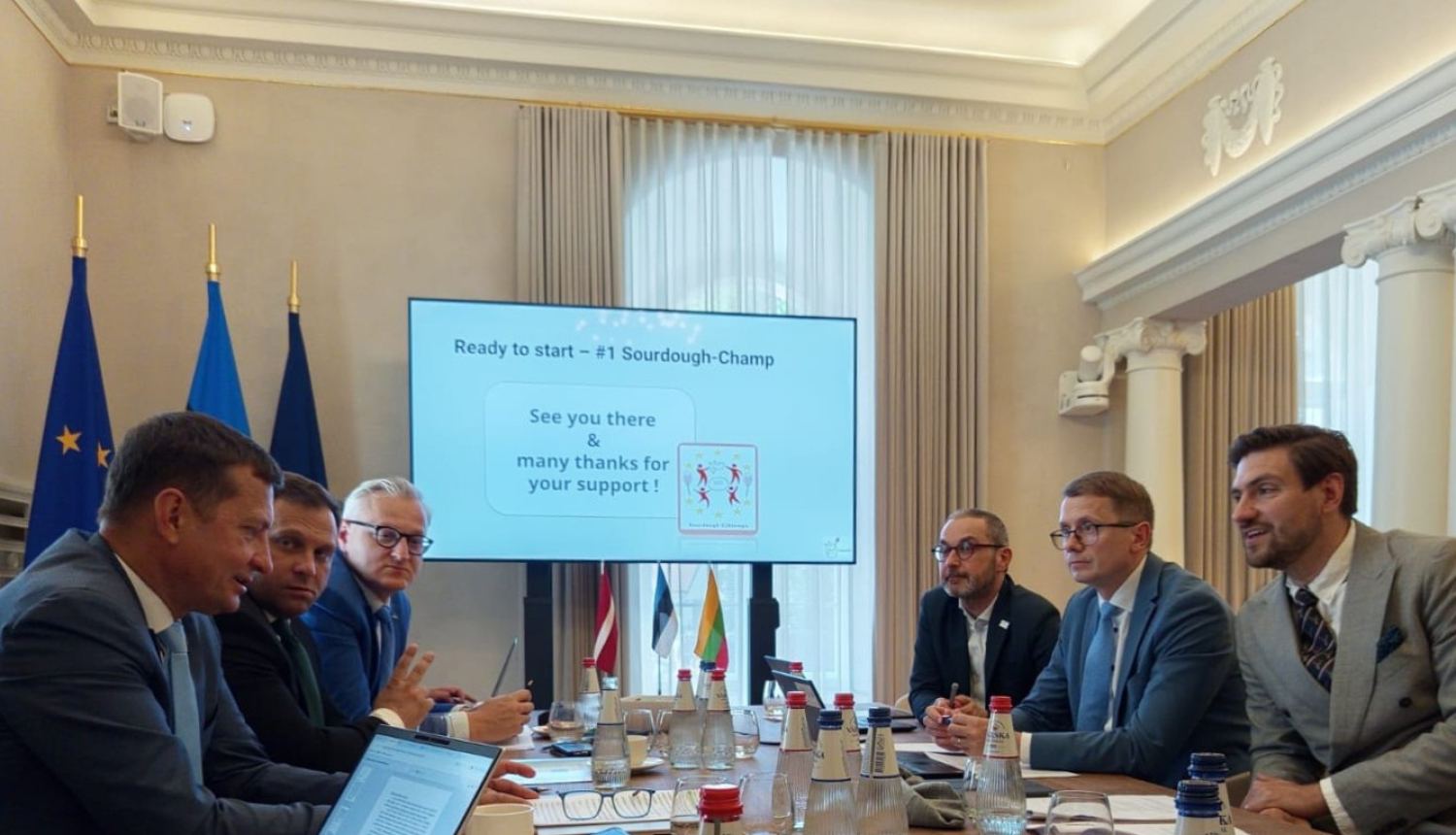On Sunday and Monday, July 6 and 7, Minister of Agriculture Armands Krauze met in Tallinn, Estonia, with the Lithuanian Minister of Agriculture Ignas Hofmanas and the Estonian Minister of Regional Affairs and Agriculture Hendrik Johannes Terras to discuss possible changes and positions regarding the implementation of the Common Agricultural Policy (CAP) after 2027, the EU multiannual budget, and food security in the Baltic states.
The agriculture ministers of the Baltic countries share a unified position that the European Union (EU) must have strong agriculture and food production. Therefore, the EU multiannual budget must include adequate CAP funding. It is particularly important for the Baltic states that from 2028, direct payments are equalized across the EU. The EU budget must also provide support for rural development, with special attention given to the rural areas of the EU's Eastern regions, which are currently facing particularly difficult socio-economic conditions.
The ministers discussed the European Commission's (EC) plan to introduce a unified approach to all funds in the EU multiannual budget after 2027. Such sectoral equalization raises concerns that the specific needs of agriculture and rural areas, as well as the strategic importance of the CAP in ensuring food securuty, could be overlooked.
Minister of Agriculture Armands Krauze stated: “I am certain that even after 2027, the CAP must remain a significant policy with a strong budget, providing support both for the income of farmers and rural development. There must be certainty about the future of the CAP, ensuring a sufficient and targeted budget aligned with CAP goals that guarantees stability in agriculture and food production and promotes development.”
The ministers provided an overview of the food supply systems in their respective countries, discussed the resilience of food supply chains, and their current state of readiness for crises. Ensuring food supply for the public is a matter of national and regional security, which is why the ministers welcomed the idea of creating a unified food security network in the Baltics for crisis situations.
Anton Blöth, chairman of the international project "Peace Bread," met with the Baltic ministers to discuss the future development of the project. The initiative, which involves 12 European countries—Germany, Bulgaria, Latvia, Lithuania, Estonia, Croatia, Poland, Slovenia, Romania, Slovakia, the Czech Republic, and Hungary—has been operating for 11 years. The idea of Peace Bread has gained renewed relevance in today's geopolitical climate, prompting discussions about its future direction.



